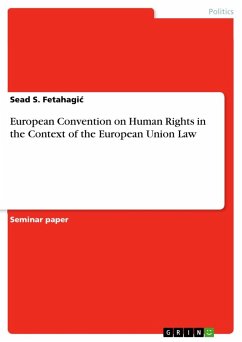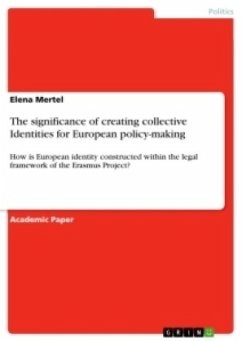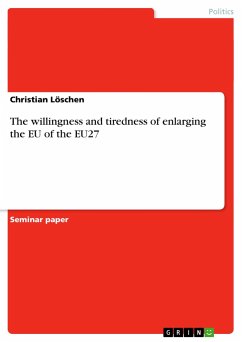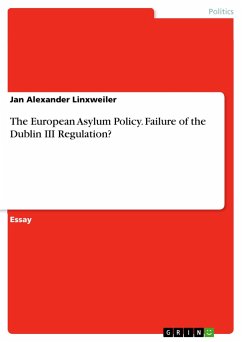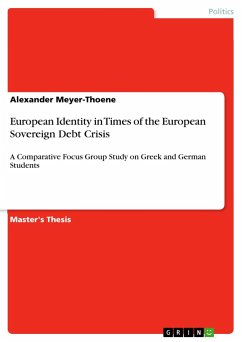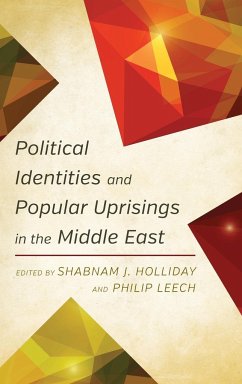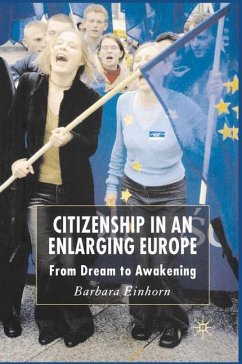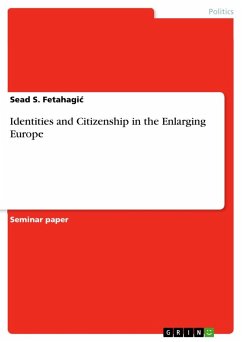
Identities and Citizenship in the Enlarging Europe

PAYBACK Punkte
0 °P sammeln!
Seminar paper from the year 2003 in the subject Politics - Topic: European Union, grade: 10,00, University of Sarajevo (Centre for Interdisciplinary Postgraduate Studies), course: European Politics and Society, language: English, abstract: In the eve of EU enlargement of 2004 to include eight East-European countries the paper problematized the clash between two historically different concepts of national identity and citizenship. The "culture-nations" of the East are being aligned with the "state-nations" of the West, while the inhabitants of both regions are offered a common perspective to en...
Seminar paper from the year 2003 in the subject Politics - Topic: European Union, grade: 10,00, University of Sarajevo (Centre for Interdisciplinary Postgraduate Studies), course: European Politics and Society, language: English, abstract: In the eve of EU enlargement of 2004 to include eight East-European countries the paper problematized the clash between two historically different concepts of national identity and citizenship. The "culture-nations" of the East are being aligned with the "state-nations" of the West, while the inhabitants of both regions are offered a common perspective to enjoy rights of the EU citizenship. An assumption that newly admitted Eastern countries should somehow adopt the Western "civic" model of nationality is challenged by the fact that even the Western societies are increasingly uncertain about their national and cultural identities under the pressures of economic globalization, producing the phenomenon of "hybrid" or "kaleidoscopic" identities. Although at this time of enlargement extreme nationalist policies were not dominant, the paper presents the case of the former Yugoslavia whose collapse and ensuing wars showed what consequences might be expected when the concept of national citizenship is reserved exclusively for ethnic majorities. Under the rule of ethnocracy, which operates in the mode of conflict production towards "minorities" or "others", the idea of democratic citizenship is essentially endangered. To deal with this problem some have proposed the idea of "differentiated citizenship" recognizing collective rights of certain groups. Liberal critics however, warn that in such a case citizenship loses its integrative function and endangers the stability of a political community. The EU citizenship does not replace national citizenship of member states, upon which it is based, but adds a new layer of rights and obligations under the Community Law. Since any citizenship in principle represents a relation between an individual and a political community, the lack of "national" political institutions of the EU generates a "fragmented citizenship". Thereby a EU citizen is frequently in a position, due to proclaimed freedom of movement, to demand rights from a state she is not national of. Even more complex is a problem of third-country (non-EU) nationals legally residing in the Union who are denied Union citizenship. As this citizenship is predicated upon national citizenship, the member states retain sovereign right to impose restrictions on citizenship in order to protect their cultural or political homogeneity.





